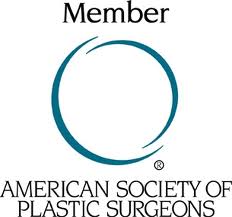Almost every week there are reports from somewhere in the U.S. of ‘botched’ cosmetic surgery. This does not refer to the patient who has a slightly uneven facelift, prolonged forehead numbness after a browlift, liposuction irregularities, concerns about breast lift scarring, or a dog ears after a tummy tuck. Not that these are completely trivial to the patient who has them but these are within the scope of expected outcomes from the procedure and are largely aesthetic in nature. ‘Botched’ cosmetic surgery pertains to disasters resulting in severe medical complications including death.
Some of the most recent botched surgery examples include include full-thickness scalp loss from a hair transplantation (loss of the scalp on the back of the head), hand paralysis due to severed nerves from a transaxillary breast augmentation, liver lacerations from liposuction and death from caulking compounds injected into the buttocks- just to name a few. While the internet makes just about any story newsworthy and exposed, these are well beyond being a sensationalized story. Such tragedies would have been news even back in the days when there were only three TV stations.
At the heart of these tragic events were the qualifications of the physician, or more specifically, the lack thereof. The definition of incompetence during a truly botched surgery is either having little anatomic and technical knowledge of how to perform the surgery (training) or technically knowing how to complete the procedure but performing it in a completely reckless manner (temporary or prolonged incompetence). The tragedy of these botched cosmetic surgeries is that almost all of them were done by doctors who had no formal training in plastic surgery – or who received any surgical training- or were not even licensed physicians at all. Lack of adequate, specialty-specific training is the major crux of most dire cosmetic surgery complications.

The claim of being a ‘cosmetic surgeon’ is the confusing one because it is an unregulated concept. It is a general marketing term that may imply an extension of the doctor’s basic training into cosmetic work on similar anatomic regions (reasonable training), some training in certain procedures from a twenty-five year-old society (may be reasonable) or just a doctor who chooses to do some cosmetic ‘work’ without any real training at all (unreasonable). Either way, their base training is not the regulated training of plastic surgery but in some other medical field. Arguments are made that some of this work is equivalent to those doctors with more formal training. That is a debate for another day. The bottom line is… don’t count on doctors to help you evaluate their qualifications.
Ultimately it is the patient’s responsibility to investigate and use common sense. Should a gynecologist be doing hair transplants or breast augmentations? Conversely, would you choose a plastic surgeon to deliver your baby simply because he or she is a physician? Should an internist or emergency room doctor being doing your liposuction? Should an ear nose and throat doctor being doing your tummy tuck? Should an eye doctor perform your rhinoplasty? These examples occur daily in most large cities simply because many patients are unaware of the underlying difference in training. Choosing to have surgery with a physician who has not had the most advanced specialty training does not mean you’ll have a bad aesthetic result, but it does greatly increase the risk that you’ll have a seriously life-changing complication. When things go wrong during surgeries as they sometimes do, a lack of knowledge may not only be what creates a problem but will make it extremely difficult or impossible to reverse what has happened.
Beyond a doctor’s training, a red flag or warning sign is price. Low prices for cosmetic procedures are understandably attractive to prospective patients but all too often are low for a good reason. This does not mean that high prices guarantee great results or safety either. But low prices for procedures, often incredulously low by industry standards, exist to ensnare the most undiscerning of patients. Bear in mind that medical care – whether for an elective cosmetic procedure or an angioplasty- should never be sought at a ‘bargain’ price. An undiscerning patient who will overlook a doctor’s training to have a chance to undergo the cosmetic changes they have dreamed about. But in some cases that are becoming all too frequent, that dream turns into a nightmare.
Dr. Barry Eppley
Indianapolis, Indiana


